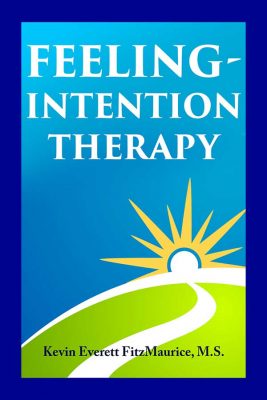CounselingArea 1Area 2Area 3Area 4Related Pages
4 Areas of Focus for Counseling
- Garden will teach you an easy and effective Cognitive Behavioral Therapy (CBT & REBT) system.
4 Areas of Focus for Counseling: You deserve more than a paid friend. Focus on these areas to do better and enjoy more. Soothing is not enough.
“We generally change ourselves for one of two reasons: inspiration or desperation.” —Jim Rohn
- Read and discover the best self-help system for CBT.
- The most advanced and comprehensive therapy available.
- The 4 Areas of Focus for Counseling will be efficiently covered.
4 Areas of Focus for Counseling
Coping, Problem-Solving, Perspective-Taking, Original Identity
- Four primary areas should be addressed in counseling.
- Easy to hard is based on the amount of work required, not the difficult
- You can rate your counseling experience on how well these four areas are explored and resolved.
- You can rate your counseling skills on addressing these four areas well.
4 Areas of Focus for Counseling
List of 4 Areas by Name
- Coping
- Problem-Solving
- Perspective-Taking
- Original Identity
4 Areas of Focus
1. Coping Area for Counseling Focus
- Coping is a good place to start because people often come into counseling because their limited set of coping skills is not working.
- Coping is the most straightforward area to explore and develop in counseling.
- Learning to cope is learning to accept reality as it is.
- Coping is acceptance.
- Coping as a response is the opposite of using a defense mechanism.
- For more information on defense mechanisms, see 32 Defense Mechanisms, including Freud’s 12.
Fix It or Accept It
- Coping also involves the choice to stop with acceptance or to proceed to problem-solving.
- Yes, you must accept a problem to be able to fix it properly.
- Instead of painting over the water spots on your ceiling, you might want to first accept, find, and fix the leak in your roof.
- See “The Two Healthy Options” for more information on when to choose problem-solving.
These books will help you learn to cope:
More Resources for Coping
- The most advanced and comprehensive therapy available.
- The 4 Areas of Focus for Counseling will be efficiently covered.
4 Areas of Focus for Counseling
2. Problem-Solving Area for Counseling Focus
- Problem-solving is needed when you can help fix problems.
- Problem-solving is a skill that people are not born with and that few teach.
- Problem-solving can be taught as a series of steps.
- Improving your thinking skills helps with problem problem-solving.
5 Simple Steps for Problem-Solving
- Research solutions.
- Practice a solution.
- Evaluate its success.
- Redo or refine the solution.
- Or pick a new solution.
More Resources on Problem-Solving
- 3Rs (Recognize, Remove & Replace): List Pages
- Read Problem Solved! 3Rs to mater problem-solving.
- The most advanced and comprehensive therapy available.
- The 4 Areas of Focus for Counseling will be efficiently covered.
4 Areas of Focus for Counseling
3. Perspective-Taking Area for Counseling Focus
- Perspective-taking is a skill that can be taught and learned with practice.
2 Types of Perspective-Taking
(1) You find alternative views of something (at least five always exist).
- Different views of a problem allow you to understand how others see or understand the problem.
- The 5TP Teaches the skill of finding different views for problems or issues.
- The 5TP is the easiest and best model for learning to look at things from different points of view.
- Read Discovery Demands 5TP to learn more about perspective-taking as a life skill.
(2) You find different ways to approach the problem without lying about what the problem is.
- Different approaches to a problem allow you to choose different ways to deal with the problem.
- Different approaches require different attitudes.
Different Approaches (not just different views)
- Instead of blaming or whining, you cope. Instead of just coping, you find a way to use the problem to your advantage.
- You do not pretend the problem is not what it is, but you do find out how to approach the problem best.
- How can I use the problem to my advantage?
- This is not pretending the problem is not a problem or is a gift.
- “I can learn from this.” Not, “This is a lesson sent to me.”
- “I can make the most of this.” Not, “This is a gift.”
- Yes, you can be grateful that you have an alcoholic history because that is how you found spirituality.
- However, this does not make your alcoholic history into something good.
Some Questions for a Different Approach
- How can to make the problem less bad?
- How to make a new use for the problem?
- How do we turn the problem into a partial advantage?
Some Attitudes for a Different Approach
- I will not change or lie about what the problem is.
- I will not pretend away the problem.
- I will choose to learn, benefit, or find a use for the problem.
- The most advanced and comprehensive therapy available.
- The 4 Areas of Focus for Counseling will be efficiently covered.
4 Areas of Focus for Counseling
4. Original Identity Area for Counseling Focus
- Your original identity is the one you had as a little child. It was your true identity.
- You are only authentic when you identify with your actual being.
Help Clear Your Mind of False Identities
- Learn and practice the main REBT (Rational Emotive Behavior Therapy) principles of USA (unconditional self-acceptance), UOA (unconditional other acceptance), and ULA (unconditional life acceptance).
- Remember, nothing is about you because nearly everything is about your ego and others’ ego for you.
- Remember, the story of life is not about you.
- Stop trying to know, do, or be something.
- Unlearn your self-esteem and self-talk habits of fantasizing about being things and thoughts.
- Reduce your ego drives, games, and needs.
Help Re-owning Your Authentic Self
- Relearn your old self-hosting habits.
- You are the container, not the contents.
- Be your authentic self, which means act more spontaneously.
- Be real, which means to be honest and direct.
- Say what you think and feel, or wait to talk later.
- Mean what you say or don’t say it.
- Please do what you say you will do, or don’t say you will do it.
- Be true to yourself, which means to keep honest about your intentions and desires.
- “This above all: to thine own self be true.” —William Shakespeare, Hamlet.
- Here are 32 ways you deceive yourself.
- Return to natural-self experiences (remember and recreate).
- Learn about your vessel nature by reading Self: Who Am I?
3 Books Will Help You with Understanding & Reducing Your Ego
4 Areas of Focus for Counseling
Conclusion
- People who can cope are happier and do better in life since life is full of changes and challenges.
- People who can problem-solve lead more successful lives at work and home because problems are fixed when possible.
- People who have mastered perspective-taking can live fully and peacefully in any time or situation and thereby help others to do so, too.
- People with the right Identity can be content being who they are without having to prove anything to anyone.
- Authentic people can stand before God, but phonies and pretenders cannot.
- The most advanced and comprehensive therapy available.
- The 4 Areas of Focus for Counseling will be efficiently covered.
4 Areas of Focus for Counseling
Related Pages of Free Information
- CBT, CT, & REBT Cognitive Psychotherapies: List Pages
- Coping Skills: Free Help
- Counseling Issues: Free Help
- Ego & Self-Esteem Fast-Facts
- Emotional Responsibility: List Pages
- Exercises & Techniques: List Pages
- Feeling & Coping: Fast-Facts
- REBT (Rational Emotive Behavior Therapy): List Pages
- Self-Esteem Issues: List Pages
- Unconditional Self-Esteem (USE): Defined
- Read and discover the best diagrams and maps of how people play games with your mind and heart.
- The most advanced and comprehensive therapy available.
- The 4 Areas of Focus for Counseling will be efficiently covered.



